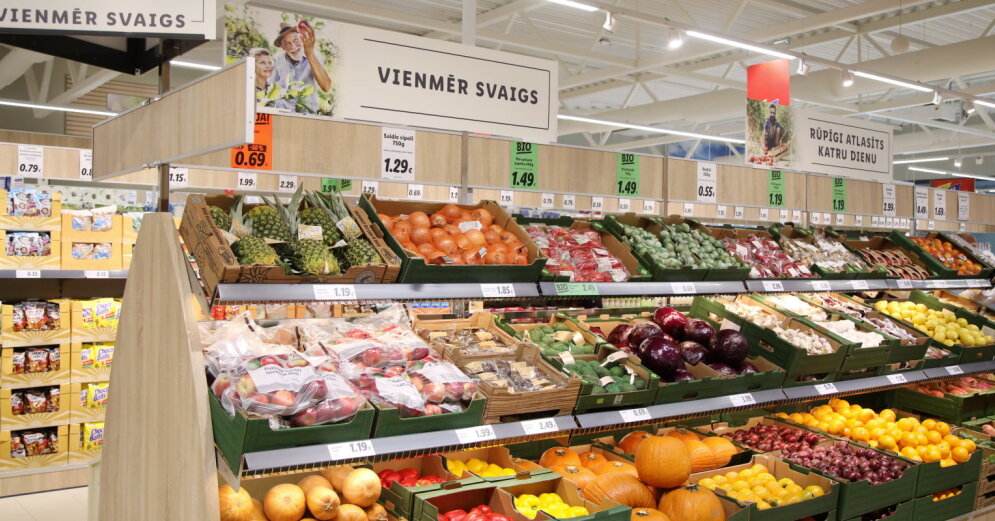Only a few people in Latvia have not felt the rise in food prices, and experts’ forecasts unfortunately do not allow them to look to the future with expectations, expecting the fall in food prices. What are the challenges facing the food sector today, and what are the external factors that are making us pay more and more for food?
–
–
Content will continue after the ad
Advertising
–
“We are currently living in an economic area where the prices of food, services and energy are becoming more expensive and the money earned is losing value due to inflation, leading to a decline in the purchasing power of the population. up to 6 monthly salaries, which can help the family to cover unforeseen expenses and help in unexpected situations, “says Jānis Mūrnieks, Head of the Retail Services Department of Citadele Bank.
“There are various ways for everyone to optimize their spending, and space can also be found in the food budget, such as shopping and creating their own weekly grocery shopping cart online, thus avoiding spontaneous purchases and restricting takeaway coffee and other purchases that significant savings can be made in the end. “
Supply chain problems
The disruption of various logistics routes, the shortage of workers and the shutdown of production facilities in the world became topical with the onset of the Covid-19 pandemic, but the Russian invasion of Ukraine and the subsequent sanctions have completely changed supply chains and production worldwide. This also affects producers in Latvia, which so far, for example, bought a large part of feed from Russia, Belarus and Ukraineand now it has to look for more expensive alternatives.
Rising raw material prices
One of the main reasons for the direct impact on the food sector is raw material prices. Cereal prices are currently at an all-time high, and this will have an impact not only on cereals but also on meat products. For example, the price of wheat is twice as high as a year ago, and the fact that India has just adopted a ban on wheat exports, although many hoped for Indian resources as a solution to replace Ukrainian wheat. Ukraine is also one of the largest exporters of sunflower oil in the world, so the prices of various vegetable oils have risen significantly. The rise in the price of fertilizers, which has been going on since last autumn and directly increases the costs for our local producers, is also not helping farmers.
Energy crisis
In order to produce food, everyone needs energy resources to heat and provide electricity to production facilities and equipment. Already last year, the prices of fuel resources as well as electricity became more expensive, and the Russian invasion of Ukraine made the rise in prices even faster, as a result of which, for example, the price of natural gas is 5-6 times higher than a year earlier. Also in Latvia, from June 1, heat energy tariffs will change in several municipalities, which means that we will pay more for heating both in apartments and factories, and it is clear that this will also have an impact on food prices.
Fuel prices
Fuel is one of the main resources whose price fluctuations affect any part of the economy, especially farmers, for whom the operation of various types of supply and heavy machinery is fundamental to their daily operations. The price of fuel is formed by a combination of several factors – the price of oil on the stock exchange, the euro-dollar exchange rate, global events, as well as tax policy in Latvia, so fuel prices are difficult to predict in the future.
–


